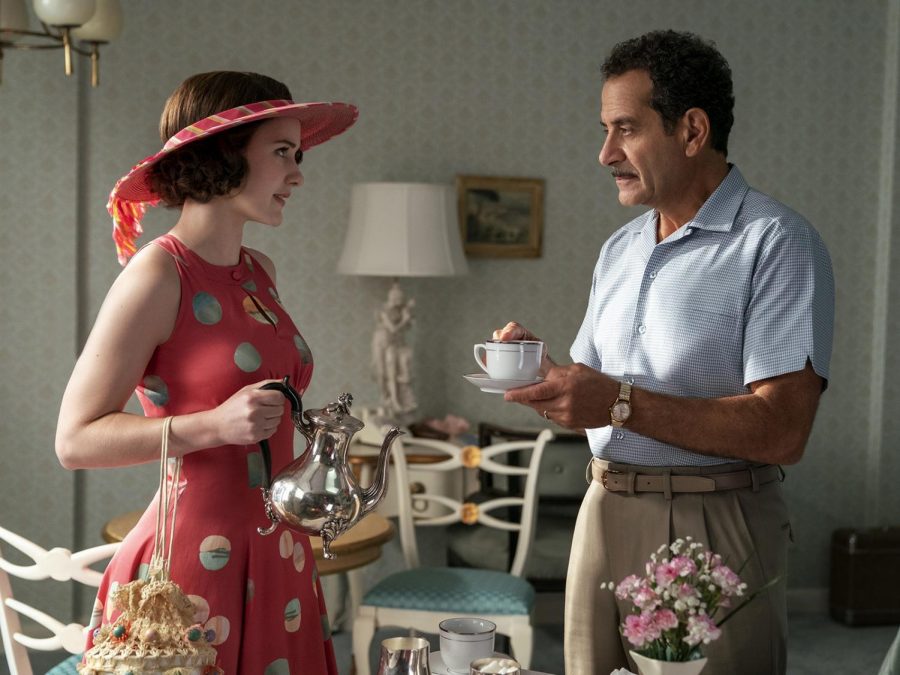In Season Three, Mrs. Maisel Turns to Social Commentary
Midge Maisel (Rachel Brosnahan) and her father Abe Weissman (Tony Shalhoub)
The Marvelous Mrs. Maisel is an Amazon Prime original series about Miriam “Midge” Maisel (Rachel Brosnahan), a Jewish woman who pursues a comedy career after being left by her husband.
Written by Amy Sherman-Palladino, this portrayal of an Upper West Side Jewish family in the late 1950s, early 1960s was an immediate hit. The characters are spot on. For example, Midge’s father Abe Weissman (Tony Shalhoub) is almost an exact carbon copy of my grandfather.
The third season was released on Dec. 6, and the first couple episodes were slightly disappointing. The writing didn’t seem to be quite as fast paced as in previous seasons, and the jokes were more spread out. I was concerned that the whole season would be like this, but it picked up in the third episode, though not quite in the way I expected.
While the first two seasons were spectacular because of the constant pee-in-your-pants kind of laughter, the third season took the route of advocacy that has recently become popular in television shows.
It seemed as if the third season tried to tackle every broad issue the world is experiencing right now, which is a lot to pack into eight episodes. The third season dealt with racism, sexism, homophobia, classism, capitalism and even the downfalls of gambling.
While the show skillfully maneuvered these issues, packing all of these important topics into eight episodes was just too much. Especially combined with the 1960s setting, it became difficult for the show to give the right attention to these topics without being historically inaccurate.
The characters are genuinely portrayed. Throughout the third season, Midge Maisel has two demons battling inside her. One demon tells her to be a strong independent woman and fight to be successful in a predominantly male field, and the other demon tells her that she needs a new dress for every occasion to always look perfectly put together and remain appealing to men. This struggle is one that many women experience and was amazingly performed by Rachel Brosnahan.
Abe and Rose Weissman, Midge’s parents, were also beautifully written characters. Tony Shalhoub was relatable to many Jewish people with a father or grandfather in their life. While he is a traditionalist, he tries to break free of this throughout the season, but always comes back to those little quirks that you suddenly realize your grandpa also has.
Rose Weissman (Marin Hinkle) was a relatively static character for the first two seasons, but she experienced some character development in the third season. With the many changes to her life, she had to find ways of coping with her new lifestyle— a unique challenge for her.
Interestingly, only about half of the leading actors are Jewish. This was surprising to me because they so accurately portray Jewish traditions and lifestyles. The main writer and producer, Amy Sherman-Palladino, was raised Jewish.
Overall, the writing of this show is spot-on, the characters are spot-on, and the representation of a wide variety of issues provides a captivating story line.
I would recommend this show for people who are looking for a fast-paced, hilariously funny show, which is great to watch with family.

Bridgitte Feldman (she/they), class of 2021, began writing for the Beachcomber in 2018. She is interested in covering psychological, scientific and a variety...










